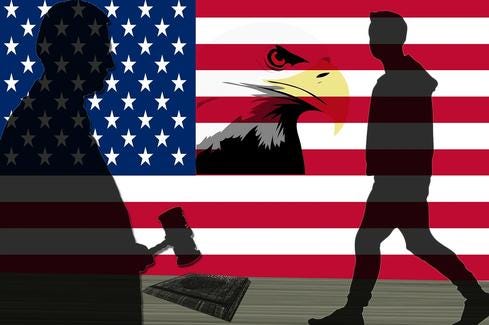Net Neutrality Vote Won't End Debate
The FCC is slated to approve a controversial plan for net neutrality -- but that won't be the end of the matter.


Net Neutrality: 4 Legal Challenges To Consider
Net Neutrality: 4 Legal Challenges To Consider (Click image for larger view and slideshow.)
After months of fighting, negotiations, activism, public comments, press conferences, and sound bites -- and after years of litigation -- the FCC is voting today on new net neutrality rules to regulate ISPs as utilities at the federal level.
The rules will grant the FCC the power to regulate providers of broadband services -- including mobile providers -- under Title II of the Communications Act. This is the same way traditional phone companies, known as "common carriers," are currently regulated. The rules will, in turn, allow the FCC greater leeway to impose and enforce net neutrality principles.
At press time, the vote was expected to pass 3-2, with dissent expected from the two Republican FCC Commissioners, Ajit Pai and Michael O'Rielly. Some net neutrality proponents have feared a last-minute reversal from FCC Commissioner Mignon Clyburn, who recently requested that certain provisions be eliminated from Wheeler's plan. Specifically, Clyburn objects to the proposal's creation of a new legal category of services -- "broadband subscriber access services" -- that would act as an alternative, "hybrid" justification giving the FCC Title II authority over ISPs. It is doubtful that Clyburn's request will present any kind of real hold-up -- especially considering that net neutrality opponents and proponents alike oppose the same rules that Clyburn wants rolled back.
[ What's behind the FCC's ISP reclassification attempts? Read FCC Net Neutrality Salvo: Reclassify Broadband Providers. ]
Meanwhile, Republicans on Capitol Hill have stalled in an attempt to preempt the FCC with compromise legislation, with Democrats refusing to discuss the matter until after the vote. "We're not going to get a signed bill that doesn't have Democrats' support," Senate Commerce Committee Chairman Senator John Thune (R-SD) told the New York Times. "This is an issue that needs to have bipartisan support."
For the time being, therefore, Wheeler's new net neutrality rules appear to be all but a lock. Activist net neutrality proponents have already scheduled celebrations. Digital rights group Fight for the Future is planning a shindig outside the FCC headquarters, replete with mobile demonstration signs, marching bands, and "an airborne incarnation of Grumpy Cat," according to a statement from Evan Greer, the group's campaign director.
The FCC has historically been reluctant to exercise the option of categorizing ISPs as "common carriers" under Title II because of political sensitivities. The Commission declined to do so in 2010 in the face of political pressure from both major parties, favoring a "light regulatory touch." If Clyburn succeeds in getting the Commission to pass a version of Wheeler's proposal without his hybrid option, regulation-wary Congress members on both sides of the aisle may become even more incentivized to push through legislation that addresses net neutrality.
[ See what wireless carriers think about FCC's rules. Read FCC Net Neutrality Push Rattles AT&T, Verizon. ]
Alternatively, Republicans opposed to Wheeler's plan may only have to wait for a potential post-election regime change in 2017. Indeed, new regulations don't happen overnight, and the federal government is not known for expediency or efficiency when it comes to adapting to technological issues.
"The FCC is going to spend a substantial amount of resources ... over months -- maybe years -- ironing out the kinks in this proposal," Commissioner Pai told reporters in a February 10 press conference at FCC Headquarters. "There are a number of important administrative steps that are going to take us some time beyond February 26."
Additional uncertainty centers on what, exactly, the plan says. Wheeler has refused to allow his plan to be released to the public until it has been voted on and approved. The plan stands at more than 300 pages. According to Pai, 8 of these pages cover proposed rules, with another 79 pages covering provisions from which the FCC anticipates forbearing.
The only thing that is clear is that Wheeler's proposal is less about net neutrality itself and more about a means of achieving net neutrality -- giving the FCC the power to regulate ISPs as "common carriers." It remains to be seen how long it will take for Wheeler's proposal to take full effect (if it ever does) and how closely the FCC's exercise of these powers resemble what has been reported.
The short of it is that today is only a big day ceremonially. In terms of when, and to what extent, things will change, there's a lot of work and waiting to be done -- and a lot of conflict yet to be resolved.
Attend Interop Las Vegas, the leading independent technology conference and expo series designed to inspire, inform, and connect the world's IT community. In 2015, look for all new programs, networking opportunities, and classes that will help you set your organization’s IT action plan. It happens April 27 to May 1. Register with Discount Code MPOIWK for $200 off Total Access & Conference Passes.
About the Author
You May Also Like






